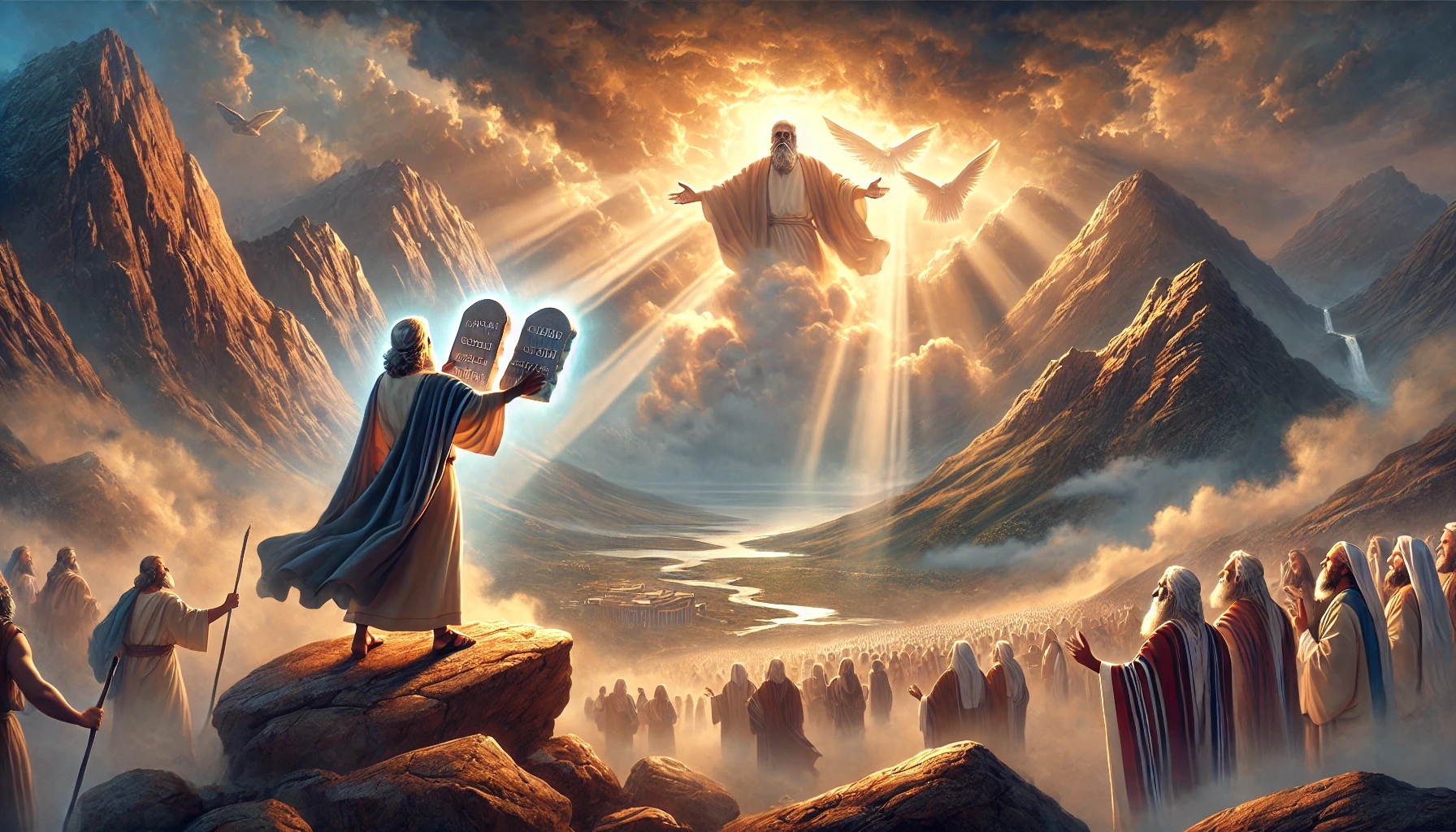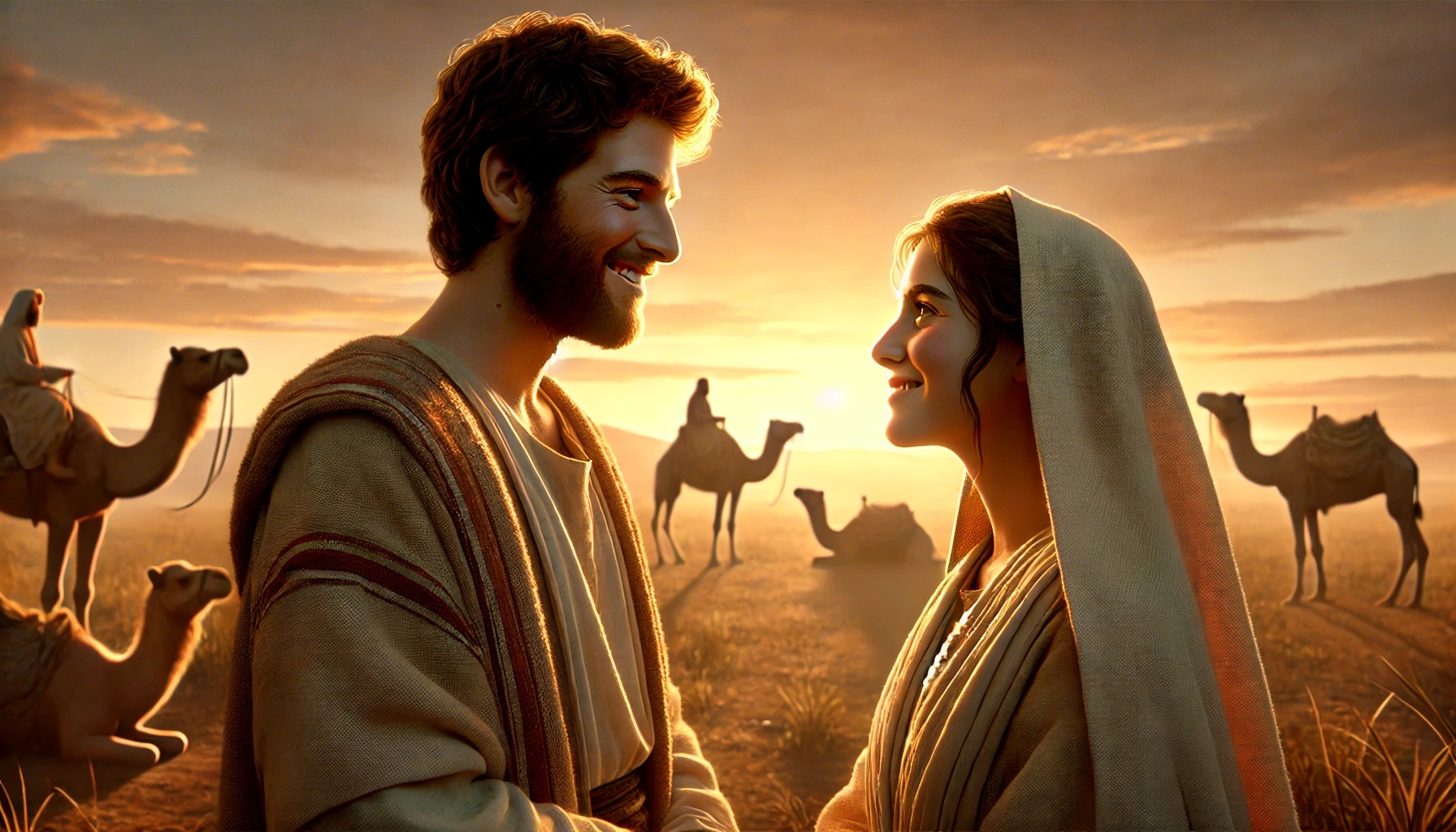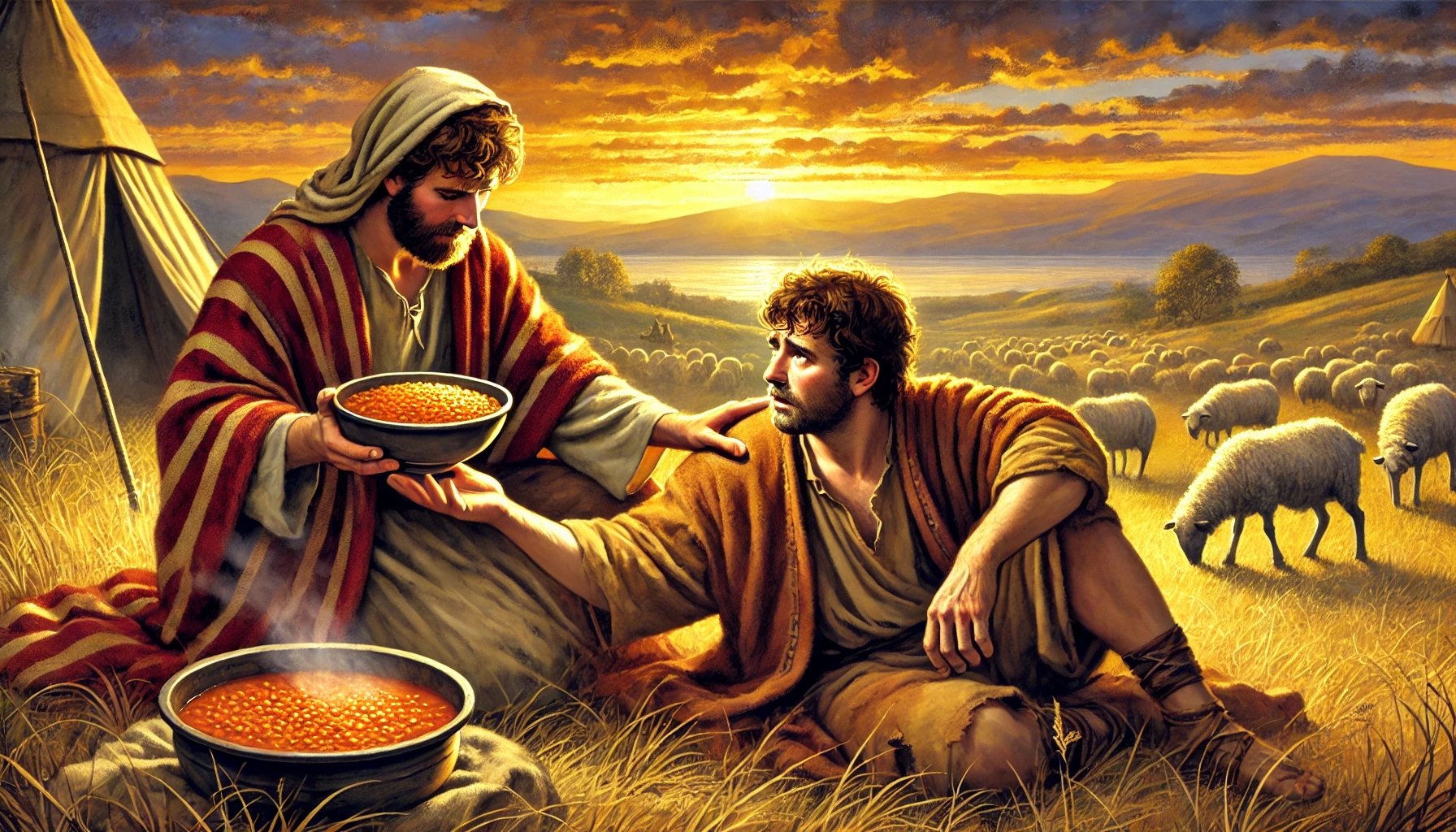
📅 July 9, 2025
📖 DAILY BIBLE READING
✨ Exodus 34 – The Glory of God Transforms
⛺ Covenant, forgiveness, and a shining face – how God’s presence shapes our lives
══════════════════════════════════════════════
📜 Bible Text – Exodus 34 (KJV)
1 And the Lord said unto Moses, Hew thee two tables of stone like unto the first: and I will write upon these tables the words that were in the first tables, which thou brakest.
2 And be ready in the morning, and come up in the morning unto mount Sinai, and present thyself there to me in the top of the mount.
3 And no man shall come up with thee, neither let any man be seen throughout all the mount; neither let the flocks nor herds feed before that mount.
4 And he hewed two tables of stone like unto the first; and Moses rose up early in the morning, and went up unto mount Sinai, as the Lord had commanded him, and took in his hand the two tables of stone.
5 And the Lord descended in the cloud, and stood with him there, and proclaimed the name of the Lord.
6 And the Lord passed by before him, and proclaimed, The Lord, The Lord God, merciful and gracious, longsuffering, and abundant in goodness and truth,
7 Keeping mercy for thousands, forgiving iniquity and transgression and sin, and that will by no means clear the guilty; visiting the iniquity of the fathers upon the children, and upon the children’s children, unto the third and to the fourth generation.
8 And Moses made haste, and bowed his head toward the earth, and worshipped.
9 And he said, If now I have found grace in thy sight, O Lord, let my Lord, I pray thee, go among us; for it is a stiffnecked people; and pardon our iniquity and our sin, and take us for thine inheritance.
10 And he said, Behold, I make a covenant: before all thy people I will do marvels, such as have not been done in all the earth, nor in any nation: and all the people among which thou art shall see the work of the Lord: for it is a terrible thing that I will do with thee.
11 Observe thou that which I command thee this day: behold, I drive out before thee the Amorite, and the Canaanite, and the Hittite, and the Perizzite, and the Hivite, and the Jebusite.
12 Take heed to thyself, lest thou make a covenant with the inhabitants of the land whither thou goest, lest it be for a snare in the midst of thee:
13 But ye shall destroy their altars, break their images, and cut down their groves:
14 For thou shalt worship no other god: for the Lord, whose name is Jealous, is a jealous God:
15 Lest thou make a covenant with the inhabitants of the land, and they go a whoring after their gods, and do sacrifice unto their gods, and one call thee, and thou eat of his sacrifice;
16 And thou take of their daughters unto thy sons, and their daughters go a whoring after their gods, and make thy sons go a whoring after their gods.
17 Thou shalt make thee no molten gods.
18 The feast of unleavened bread shalt thou keep. Seven days thou shalt eat unleavened bread, as I commanded thee, in the time of the month Abib: for in the month Abib thou camest out from Egypt.
19 All that openeth the matrix is mine; and every firstling among thy cattle, whether ox or sheep, that is male.
20 But the firstling of an ass thou shalt redeem with a lamb: and if thou redeem him not, then shalt thou break his neck. All the firstborn of thy sons thou shalt redeem. And none shall appear before me empty.
21 Six days thou shalt work, but on the seventh day thou shalt rest: in earing time and in harvest thou shalt rest.
22 And thou shalt observe the feast of weeks, of the firstfruits of wheat harvest, and the feast of ingathering at the year’s end.
23 Thrice in the year shall all your menchildren appear before the Lord God, the God of Israel.
24 For I will cast out the nations before thee, and enlarge thy borders: neither shall any man desire thy land, when thou shalt go up to appear before the Lord thy God thrice in the year.
25 Thou shalt not offer the blood of my sacrifice with leaven; neither shall the sacrifice of the feast of the passover be left unto the morning.
26 The first of the firstfruits of thy land thou shalt bring unto the house of the Lord thy God. Thou shalt not seethe a kid in his mother’s milk.
27 And the Lord said unto Moses, Write thou these words: for after the tenor of these words I have made a covenant with thee and with Israel.
28 And he was there with the Lord forty days and forty nights; he did neither eat bread, nor drink water. And he wrote upon the tables the words of the covenant, the ten commandments.
29 And it came to pass, when Moses came down from mount Sinai with the two tables of testimony in Moses’ hand, when he came down from the mount, that Moses wist not that the skin of his face shone while he talked with him.
30 And when Aaron and all the children of Israel saw Moses, behold, the skin of his face shone; and they were afraid to come nigh him.
31 And Moses called unto them; and Aaron and all the rulers of the congregation returned unto him: and Moses talked with them.
32 And afterward all the children of Israel came nigh: and he gave them in commandment all that the Lord had spoken with him in mount Sinai.
33 And till Moses had done speaking with them, he put a vail on his face.
34 But when Moses went in before the Lord to speak with him, he took the vail off, until he came out. And he came out, and spake unto the children of Israel that which he was commanded.
35 And the children of Israel saw the face of Moses, that the skin of Moses’ face shone: and Moses put the vail upon his face again, until he went in to speak with him.
══════════════════════════════════════════════
🔵 Introduction
Chapter 34 of the Book of Exodus marks a special encounter between God and man. After the devastating breach caused by the golden calf (chapter 32), the people of God hit rock bottom — but God does not give up.
In this renewed meeting with Moses, God doesn’t just provide new tablets of the law — He renews the covenant, reveals His character, confirms Moses’ calling, and transforms him visibly.
This story teaches us that God begins anew even after failure, that His grace is greater than our mistakes — and that true encounters with Him bring lasting change.
══════════════════════════════════════════════
🟡 Commentary
🔹 1. Renewal Despite Failure (Verses 1–4)
God commands Moses to carve new stone tablets — a sign of a fresh start. The first tablets, symbols of the covenant, had been smashed by Moses when he saw the idolatry.
👉 God remains faithful even when we fail. His plans don’t end just because we’ve fallen.
🔹 2. Revelation of God’s Nature (Verses 5–9)
One of the most powerful passages in the Bible: God describes Himself.
“The LORD, the LORD God, merciful and gracious, slow to anger, and abounding in steadfast love and faithfulness…” (v. 6)
These words are repeated many times throughout the Old Testament (e.g. Psalm 103:8; Joel 2:13). It’s like God’s self-portrait.
But grace doesn’t mean carelessness. God forgives, but He also takes sin seriously (v. 7). The tension between mercy and justice is clear here.
🔹 3. Covenant and Calling (Verses 10–28)
God reaffirms His intention to do mighty works with Israel:
“I will perform wonders never before done…” (v. 10)
At the same time, He clearly commands separation from pagan worship and influence (vv. 12–17). Israel is not to be a nation of compromise, but one fully devoted to God.
Key religious feasts and laws are repeated (vv. 18–26), symbolizing a renewed covenant. Moses writes everything down — because what God says has lasting value.
🔹 4. Transformed by God’s Presence (Verses 29–35)
The final image in this chapter is the most striking:
Moses descends the mountain — and his face is shining.
He doesn’t even realize it, but the people see it clearly. His encounter with God has changed him — visibly and deeply.
This change has consequences: The people are in awe, even fearful — yet they also recognize something divine. Moses veils his face before the people, removing the veil only in God’s presence. This symbolic act shows: God’s glory is real — and it transforms.
══════════════════════════════════════════════
🟢 Summary
Exodus 34 is a chapter of restoration:
-
After a deep fall comes a new beginning.
-
God reveals Himself as gracious, faithful, and just.
-
The covenant is renewed — but with clear expectations.
-
God’s presence changes Moses — inside and out.
══════════════════════════════════════════════
📢 Message for Us Today
God is a God of second chances. Maybe, like Israel, you have failed. Maybe, like Moses, you’ve broken something out of disappointment. But God is calling you back up the mountain. He wants to meet you — and transform you.
His character is grace and faithfulness — but also holiness. He doesn’t just want to forgive you — He wants to write history with you. But that only happens when you worship Him alone and stop compromising.
══════════════════════════════════════════════
💡 Reflection Questions
🟡 What does my “tablet” look like? Have I broken something God once entrusted to me?
🟡 Am I allowing God to renew me — not just outwardly, but deep within?
🟡 Does anything of God’s presence “shine” from my life, in a way others can see?
🟡 Which idols or distractions do I need to intentionally remove to give God first place?
~~~~~⛺~~~~~
📆 July 06 – 12, 2025
📆 WEEKLY SPIRIT OF PROPHECY READING
📖 Ellen G. White │ Patriarchs and Prophets – Chapter 15
✨ The Marriage of Isaac
📖 Read online here
══════════════════════════════════════════════
🔵 Introduction
In a world where personal freedom is often placed above wisdom and obedience, the story of Isaac’s marriage stands out as a radiant counterexample. It shows how God Himself takes the lead in one of life’s most important decisions: the choice of a spouse. Abraham, the father of faith, does not leave this matter to chance or mere emotion but trusts in divine guidance — and Isaac trusts him.
This event is not just a family story, but a powerful lesson about obedience, character formation, true love, and God’s blessing.
══════════════════════════════════════════════
🟡 Commentary
📌 1. The Spiritual Significance of Marriage
Isaac’s marriage was not just a personal matter — it had implications for God’s plan for humanity. Isaac was the bearer of the promise; from his line would come the chosen people and, ultimately, the Messiah. A marriage with a Canaanite woman would have endangered that spiritual mission, as these peoples were deeply immersed in idolatry.
➡️ Key thought: Marriage is a spiritual covenant — it shapes generations.
📌 2. Abraham’s Responsibility as a Father
Although old, Abraham takes full responsibility for Isaac’s marriage with great foresight. He sends Eliezer, his faithful servant, with a clear mission: the wife must come from their believing relatives — and Isaac must not travel to Mesopotamia.
Abraham’s trust in God’s guidance runs deep. He says with conviction:
“The Lord will send His angel before you.” (Genesis 24:7)
➡️ Key thought: Parental care and spiritual guidance are irreplaceable — especially in matters of the heart.
📌 3. Eliezer’s Spiritual Attitude
Eliezer does more than just set out — he prays. At the well, he asks God for a sign of kindness and helpfulness — traits fitting for a God-fearing life. Rebekah’s response to his simple request becomes the answer to his prayer.
➡️ Key thought: Those who pray sincerely can recognize God’s guidance — even in everyday encounters.
📌 4. Rebekah’s Decision – Free and Faithful Consent
Despite all the preparation, Rebekah’s own will is respected. When asked if she is willing to leave her homeland, she responds freely and confidently:
“Yes, I will go.” (Genesis 24:58)
➡️ Key thought: God leads — but He never forces. Obedience is always voluntary.
📌 5. The Beginning of a Blessed Marriage
Isaac’s gentle character and upbringing in the fear of God prepare him for a blessed marriage. Rebekah becomes his wife, and the Bible says:
“He loved her… and was comforted after his mother’s death.” (Genesis 24:67)
➡️ Key thought: True love grows in the soil of faith, loyalty, and mutual dedication to God.
══════════════════════════════════════════════
🟢 Summary
Isaac’s marriage was the result of divine guidance, wise care, and voluntary consent.
Abraham, Eliezer, Rebekah, and Isaac all acted in faith, in prayer, and in obedience.
This marriage became a symbol of domestic happiness and a life under God’s blessing.
══════════════════════════════════════════════
📢 Message for Us Today
Today, the choice of a life partner is often made emotionally and independently of God’s standards. The story of Isaac and Rebekah offers a different path:
Marriage is not a private adventure, but a sacred covenant in God’s presence.
Parents and spiritual mentors have an important role — their counsel is not a burden, but a protection.
Prayer and spiritual maturity matter more than appearances or fleeting emotions.
Those who seek God’s guidance will discover that He has prepared what the heart longs for.
══════════════════════════════════════════════
💬 Reflection Question
Are you willing to let God lead in your most important life decisions — even in love?
Do you see marriage as a spiritual calling or just a romantic ideal?
Parents: Are you shaping your children’s character with love and example — or just letting them drift?
Young people: Do you see your parents as spiritual guides — or just critics?
~~~~~⛺~~~~~
📆 July 06 – 12, 2025
📆 WEEKLY SPIRIT OF PROPHECY READING
📖 Ellen G. White │ Patriarchs and Prophets – Chapter 16
✨ Jacob and Esau
📖 Read online here
══════════════════════════════════════════════
🔵 Introduction
In Chapter 16 of Patriarchs and Prophets, we meet the twins Jacob and Esau — two brothers whose character and way of life could hardly be more different. Their rivalry is not centered on worldly ambition but on one of the most essential questions of the life of faith: How much does the spiritual mean to us — how valuable is God’s promise? It is a story about priorities, decisions, and their lifelong consequences.
══════════════════════════════════════════════
🟡 Commentary
1. Two Brothers – Two Life Attitudes
Jacob is reflective, future-oriented, spiritually inclined. Esau is impulsive, adventurous, focused on the here and now. Even in the womb, God announces that the older will serve the younger. While Jacob values the birthright as a spiritual inheritance, Esau nearly mocks it and carelessly sells it for a meal.
2. The Birthright: Responsibility and Blessing
It involved more than material possessions — it meant spiritual leadership, priestly responsibility, and the privilege of being in the line through which the Redeemer would come. This right carried great spiritual dignity — but also responsibility. Esau was indifferent to this. Jacob, by contrast, deeply desired it — but unfortunately tried to obtain it by deceit.
3. Rebekah’s Influence – Faith or Manipulation?
Knowing God’s promise, Rebekah does not wait on His timing but uses human scheming. Jacob obeys, but with a troubled conscience. The deception achieves the desired blessing — but at a high cost: family division, flight, decades of separation.
4. Isaac’s Turning Point – Human Will vs. Divine Plan
Although Isaac favored Esau, he recognized after the deception that God’s will had prevailed — and he affirmed the blessing upon Jacob. Human weakness is overridden by divine providence.
5. Esau – A Moment’s Decision
The tragic moment: Esau, who had long despised the spiritual blessing, now seeks it back with tears — too late. What moves him is not true repentance, but personal loss. His story becomes a warning to all who trade the eternal for the temporary.
══════════════════════════════════════════════
🟢 Summary
Jacob and Esau represent two attitudes toward God: spiritual striving versus carnal desire. While Jacob sought the right thing the wrong way, Esau rejected the right thing altogether. God’s plan is fulfilled despite human failure — but not without painful consequences.
══════════════════════════════════════════════
📢 Message for Us Today
How much do we value God’s promises?
In a world full of distractions, offers, and instant gratification, it is easy to be like Esau — to trade the eternal for the immediate — whether through compromise in our faith or giving up spiritual principles for social or personal “peace.”
This story warns us: spiritual blessings are no game. God’s gifts are holy. When we understand their value, we will neither treat them carelessly nor try to obtain them through improper means. God fulfills His promises — but in His way, in His time, through those who trust Him.
══════════════════════════════════════════════
💬 Reflection Thought
What decision I make today could impact my eternity?
Am I — like Esau — possibly trading the eternal for the immediate?
Do I trust God to uphold His promise without my interference — or, like Rebekah, am I tempted to “help Him out”?
Lord, teach me not to misuse Your gifts — and help me to value spiritual things above temporary gain.






















